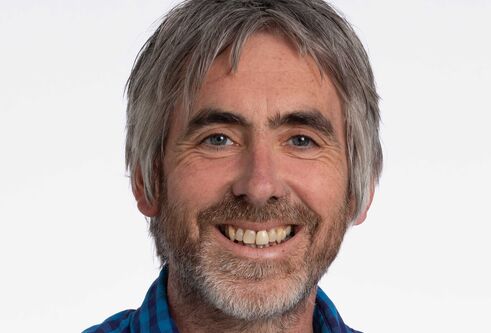PhD opportunity
Cardiovascular disease in children and young people
Unfunded
31 October 2025
Cardiovascular disease (CVD) is the most common cause of death in Scotland. Primary prevention of cardiovascular disease relies on the identification of those at risk to target early interventions. The prevalence of obesity, metabolic syndrome and type 2 diabetes (T2D) is increasing in children and young people (CYP). The clinical outcomes for people with young onset T2D are significantly worse than those who develop disease at an older age.
Novel approaches to assessing cardiovascular health could facilitate early detection of disease and improved risk stratification. These approaches include retinography, peripheral arterial tonometry, blood biomarkers and endothelial perfusion imaging, and have been used to investigate predictors of future disease in a variety of patient populations (e.g. adults with T2D, pregnancy etc).
CYP are under-represented in the literature. There are a lack of normative data for this population as well as a lack of longitudinal data to determine which are the most significant predictors of future disease in the general population. There are also a lack of published data on tracking of CVD risk in those with obesity/metabolic syndrome and/or diabetes from childhood to adulthood.
This PhD will use routinely collected clinical data from CYP with type 1 diabetes to create a retrospective longitudinal cohort, with the aim of describing the evolution of CVD in this group, using serial retinal images matched with blood biomarkers obtained during the same period. In addition, this PhD will create a new, prospective longitudinal cohort recruiting CYP with obesity. Cardiovascular health will be assessed via a combination of biomarkers, clinical imaging, and endothelial & vascular function using non-invasive techniques.
Ultimately, this work would aim to validate CVD screening methods for CYP that would allow for the identification and stratification of at-risk individuals with a view to early intervention.
Qualifications
Applicants must have obtained, or expect to obtain, a UK honours degree at 2.1 or above (or equivalent for non-UK qualifications), and/or a Masters degree in a relevant discipline. For international qualifications, please see equivalent entry requirements.
English language requirement: IELTS (Academic) overall score must be at least 6.5 (with not less than 5.5 in reading, listening, speaking and 6.0 in writing). The University of Dundee accepts a variety of equivalent qualifications and alternative ways to demonstrate language proficiency; please see full details of the University’s English language requirements.
Diversity statement
Our research community thrives on the diversity of students and staff which helps to make the University of Dundee a UK university of choice for postgraduate research. We welcome applications from all talented individuals and are committed to widening access to those who have the ability and potential to benefit from higher education.
How to apply
- Send a copy of your CV
- Discuss your potential application and any practicalities (e.g. suitable start date).
After discussion with Dr Conway, formal applications can be made via our direct application system.
Candidates must apply for the Doctor of Philosophy (PhD) degree in Medicine (3 year) using our direct application system:
Select the study mode (full-time/part-time) and start date agreed with the lead supervisor.
In the Research Proposal section:
- Enter the lead supervisor’s name in the ‘proposed supervisor’ box
- Enter the project title listed at the top of this page in the ‘proposed project title’ box
- In the ‘personal statement’ section, please outline your suitability for the project selected.

